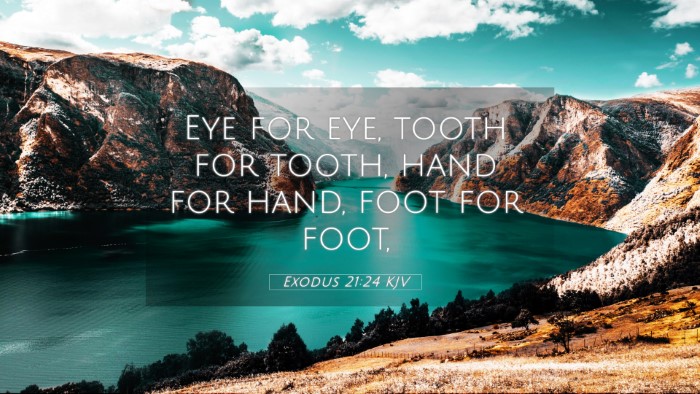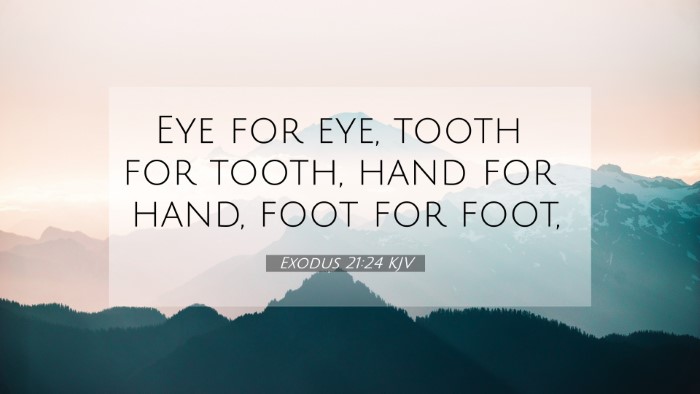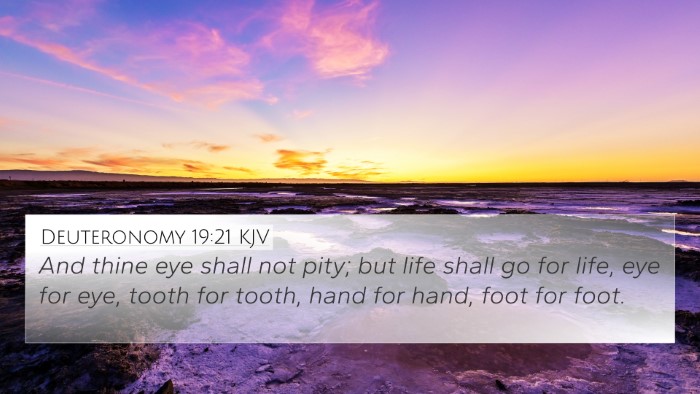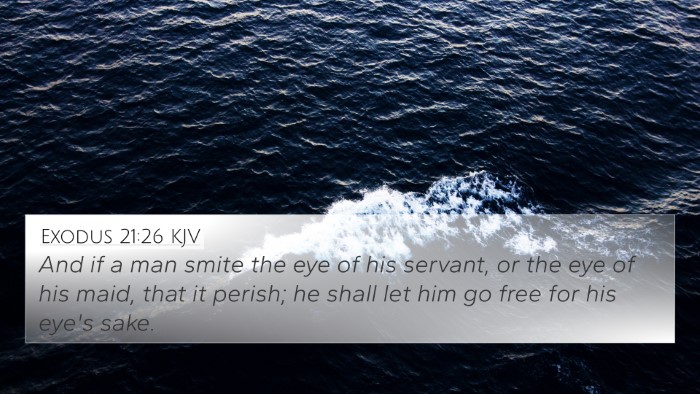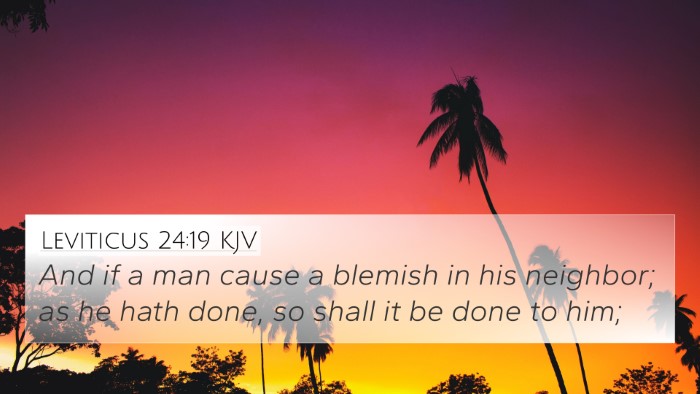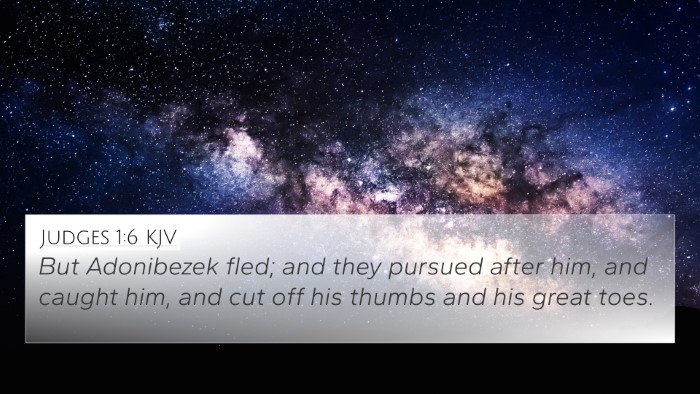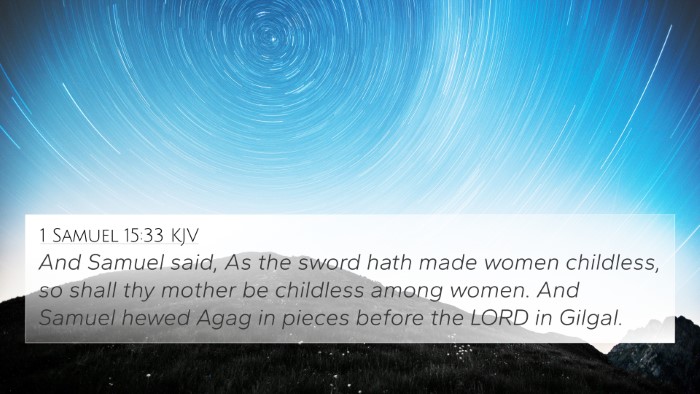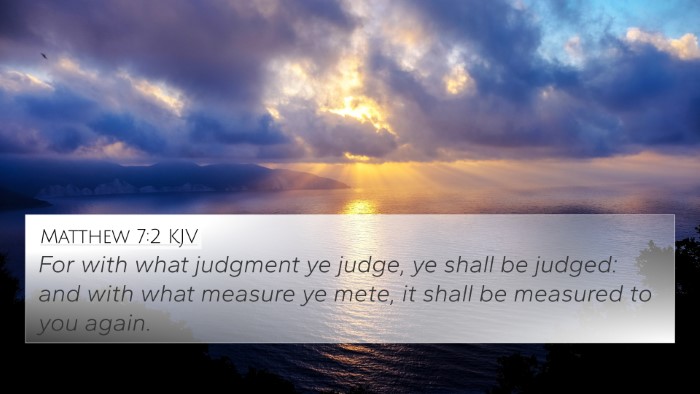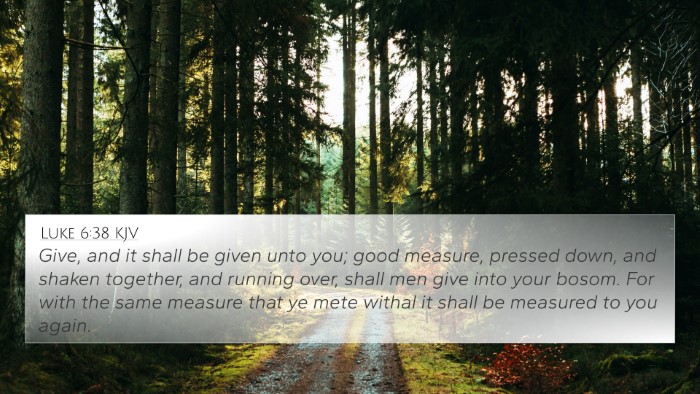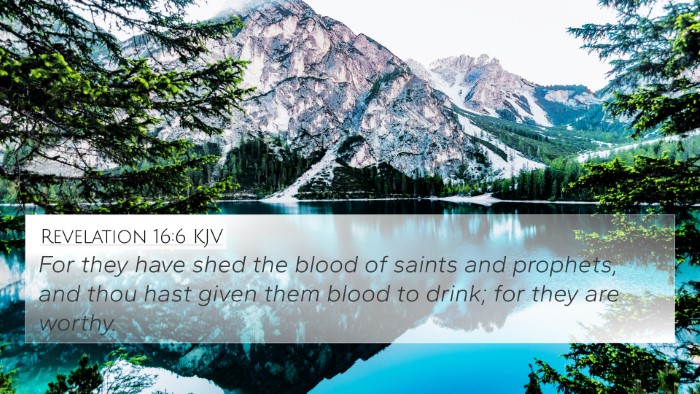Exodus 21:24 Bible Verse: "Eye for eye, tooth for tooth, hand for hand, foot for foot."
Meaning and Interpretation of Exodus 21:24
This verse, known as the "Lex Talionis" or the law of retribution, establishes the principle of proportional justice. It emphasizes that punishment should fit the crime, promoting fairness in the administration of justice.
Insights from Public Domain Commentaries
- Matthew Henry: Henry explains that this law aims to limit retribution. It is not to be taken literally as a command for personal vengeance but rather as a guideline for judges. This principle ensures that justice is administered without unnecessary severity or leniency, thus upholding a moral order within the community.
- Albert Barnes: Barnes views this verse as a reflection of divine justice, emphasizing that the consequences of wrongdoing should match the offense committed. He notes that while this injunction appears harsh, it serves to prevent excessive punishment and encourages community harmony through equitable judgments.
- Adam Clarke: Clarke interprets this verse as part of the legal framework for Israel, underscoring its purpose in curtailing personal revenge. He suggests that the passage encapsulates God's provision for social order, advocating for the protection of individual rights within society through regulated justice.
Bible Verse Cross-References
- Leviticus 24:19-20: "If anyone injures his neighbor, as he has done it shall be done to him...Fracture for fracture, eye for eye, tooth for tooth."
- Deuteronomy 19:21: "Your eye shall not pity; life for life, eye for eye, tooth for tooth, hand for hand, foot for foot."
- Matthew 5:38-39: "You have heard that it was said, 'Eye for eye and tooth for tooth.' But I say to you, Do not resist the one who is evil."
- Romans 12:19: "Beloved, never avenge yourselves, but leave it to the wrath of God, for it is written, 'Vengeance is mine, I will repay,' says the Lord."
- Galatians 6:7: "Do not be deceived: God is not mocked, for whatever one sows, that will he also reap."
- James 2:13: "For judgment is without mercy to one who has shown no mercy. Mercy triumphs over judgment."
- 1 Peter 3:9: "Do not repay evil for evil or reviling for reviling, but on the contrary, bless, for to this you were called, that you may obtain a blessing."
Thematic Connections with Other Bible Verses
The principle of proportionality in justice as outlined in Exodus 21:24 can be elaborated and compared with various biblical themes. Here are several thematic connections:
- Fairness and Justice: Psalm 89:14 emphasizes that "Righteousness and justice are the foundation of your throne," indicating that justice is fundamentally about balance and integrity.
- Divine Justice: Job 34:10-11 underscores that God does not pervert justice, affirming His role as a righteous judge who rewards according to deeds.
- The Role of Mercy: Micah 6:8 encapsulates the balance between justice and mercy, asking, "What does the Lord require of you but to do justice, love kindness, and walk humbly with your God?"
Cross-Referencing Biblical Texts
To better understand Exodus 21:24, one can use tools for Bible cross-referencing such as a concordance or a cross-reference Bible study guide. These resources help identify connections between Old and New Testament teachings and enhance the study of scripture.
Engaging in cross-referencing provides deeper insights, like observing how the teachings of Jesus in the New Testament contrast with Old Testament laws, highlighting the evolving understanding of justice, mercy, and love.
Conclusion
In summary, Exodus 21:24 serves as a critical teaching on justice and retribution, rooted deeply in the biblical tradition. By engaging with various commentaries and cross-referencing related scriptures, believers can grasp its import and apply its principles to contemporary issues of justice and moral conduct.

